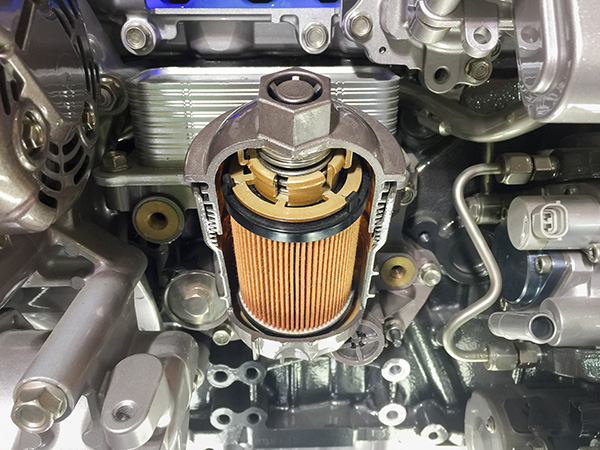
Your car's engine is a marvel of engineering, designed to convert fuel into power that propels you down the road. But what happens when something as seemingly minor as a dirty fuel filter comes into play? Can it really have an impact on your car's performance? The answer is a resounding yes. A dirty fuel filter can cause a host of issues that not only diminish your vehicle's performance but also put unnecessary strain on other engine components.
The Role of the Fuel Filter
Let's start with the basics. The fuel filter is an essential component of your car's fuel system. Its primary job is to keep the fuel that reaches your engine as clean as possible by trapping dirt, rust, and other debris. Over time, contaminants can build up in your car's fuel tank, whether from the fuel itself or as a result of rusting. If these particles were to enter the engine, they could cause damage to fuel injectors and other vital components, leading to costly repairs.
The fuel filter acts as a barrier, ensuring that only clean fuel reaches the engine. However, like any filter, it has a finite capacity. As it accumulates debris, it can become clogged, reducing its effectiveness and eventually leading to significant problems.
Signs of a Dirty Fuel Filter
You might be wondering how you can tell if your fuel filter is dirty. Unfortunately, because it's not a component that's easily visible, it can be difficult to diagnose without proper inspection. However, there are several telltale signs that could indicate your fuel filter is clogged and impacting your car's performance.
1. Poor Acceleration
One of the first signs you may notice is a lack of power when you press down on the accelerator. If your car struggles to accelerate or feels sluggish, it could be due to a restricted fuel supply. When the fuel filter is clogged, it can't provide the engine with the necessary amount of fuel, resulting in reduced power output.
2. Engine Misfires and Hesitation
Another common symptom is engine misfires or hesitation, particularly when you're trying to accelerate. If the fuel flow to the engine is inconsistent, the air-fuel mixture can become imbalanced, leading to incomplete combustion. This can cause your engine to sputter, hesitate, or even stall.
3. Difficulty Starting the Engine
If your car has trouble starting, especially after it's been sitting for a while, a dirty fuel filter could be to blame. A clogged filter can prevent fuel from reaching the engine at the necessary pressure, making it difficult to start the car. In more severe cases, the car might not start at all.
How a Dirty Fuel Filter Impacts Fuel Efficiency
Fuel efficiency is a critical aspect of your vehicle's performance, and a dirty fuel filter can significantly impact it. When the filter is clogged, your engine has to work harder to draw fuel from the tank, which can result in increased fuel consumption. You might find yourself filling up at the gas station more often than usual, even though you're driving the same amount.
Because a dirty fuel filter can cause an imbalanced air-fuel mixture, your engine might burn fuel less efficiently, further reducing your miles per gallon. Over time, this not only affects your wallet but also contributes to increased emissions and a higher carbon footprint.
Potential Damage to the Engine
A dirty fuel filter doesn't just affect performance; it can also lead to more severe damage if left unchecked. The engine relies on a precise air-fuel mixture to operate efficiently. When the fuel filter is clogged, the engine may run lean, meaning it's getting too much air and not enough fuel. This can cause higher operating temperatures, leading to overheating and potential damage to engine components such as the pistons and valves.
On the other hand, if the fuel filter causes the engine to run rich (too much fuel, not enough air), it can lead to carbon buildup within the engine. Over time, this can damage the catalytic converter and oxygen sensors, leading to costly repairs.
Maintaining Your Fuel Filter
Given the importance of the fuel filter in maintaining your car's performance, regular maintenance is essential. Most manufacturers recommend replacing the fuel filter every 20,000 to 40,000 miles, depending on the type of vehicle and driving conditions. However, it's always a good idea to check your owner's manual for specific recommendations.
In addition to scheduled replacements, you should also be attentive to the signs mentioned earlier. If you experience poor acceleration, engine misfires, or difficulty starting your car, it's worth having the fuel filter inspected by a professional. Replacing a dirty or clogged fuel filter is a relatively inexpensive repair that can save you from more significant and costly engine problems down the road.
Experiencing sluggish acceleration or engine misfires? Your fuel filter could be the culprit. Come to Inmon Automotive for expert maintenance that keeps your car in top shape.